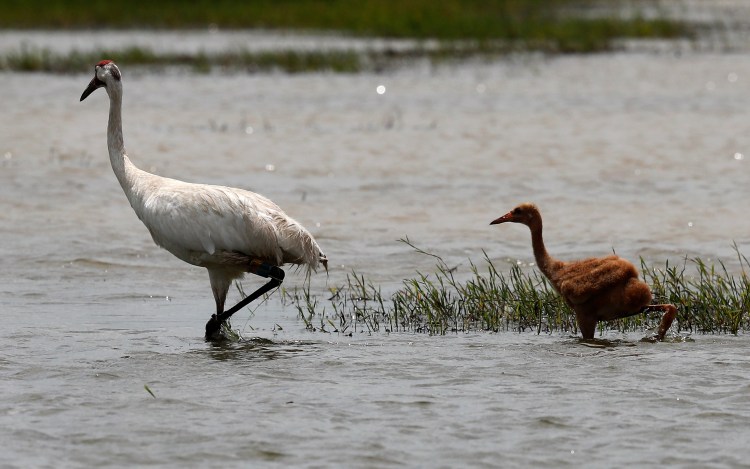The Trump administration unveiled a proposal Thursday that would strip the Endangered Species Act of key provisions, a move that conservationists say will weaken a law enacted 45 years ago to keep plants and animals in decline from going extinct.

An endangered southern resident female orca leaps from the water while breaching in Puget Sound, west of Seattle in 2014.
The proposal, announced jointly by the Interior and Commerce departments, which are charged with protecting endangered wildlife, would end the practice of extending similar protections to species regardless of whether they are listed as endangered or threatened. If the proposal is approved, likely by year’s end, protections for threatened plants and animals would be made on a case-by-case basis.
In another rollback of a key provision, the administration wants the U.S. Fish and Wildlife Service and National Oceanic and Atmospheric Administration to strike language that guides officials to ignore economic impacts when determining how wildlife should be protected.
“We propose to remove the phrase, ‘without reference to possible economic or other impacts of such determination,’… to more closely align with the statutory language,” the proposed rule said. “The act requires the secretary to make determinations based ‘solely on the basis of the best scientific and commercial data.'”
Conservationists who worried about the changes, expected for months, said their fears were realized. “These regulations are the heart of how the Endangered Species Act is implemented. Imperiled species depend on them for their very lives,” said Jamie Rappaport Clark, a former director of the U.S. Fish and Wildlife Service who is now president and chief executive of Defenders of Wildlife, a non-profit advocacy group.
“Unfortunately, the sweeping changes being proposed by the Trump administration include provisions that would undercut the effectiveness of the ESA and put species at risk of extinction,” Clark said. “The signal being sent by the Trump administration is clear: Protecting America’s wildlife and wild lands is simply not on their agenda.”
Send questions/comments to the editors.



Comments are no longer available on this story